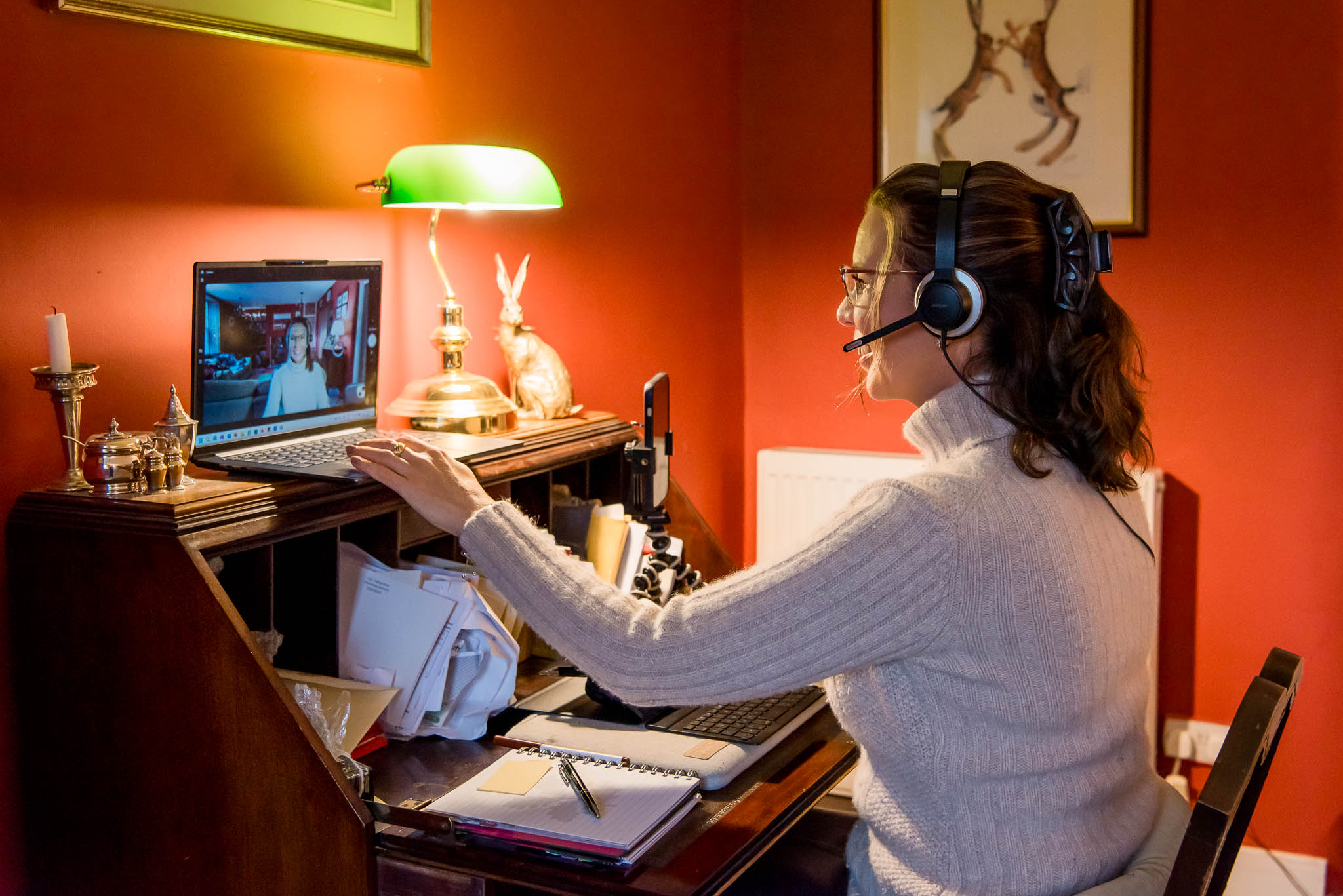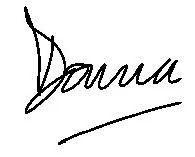"How to take business photos which resonate with my target audience" is something small business owners I meet in Edinburgh and across Scotland often ask me about.
One of the first things to remember is, the industry we work in often guides and influences the style of our brand photography.
Why?
Well, at first, I thought it was pretty clear - different images fit different jobs, based on what we usually see online.
But as I'm someone who likes to question things, I started to ponder: are these similarities in imagery just about following trends or copying other folks in the same industry? Or is there more to it?
I've done a good bit of digging, and here’s what I found out about the popular image styles in various industries - and why they work. (So yes, there IS more to it!)
How to take business photos for different industries
Find your industry here, and see what's currently popular, and why.
You absolutely do not need to stick rigidly to these suggestions, but these examples will help you see why the current style of images works:
Popular image styles within this industry
- High-quality images which show the coach in professional settings, like modern offices, conference rooms, or during workshops and seminars, where they appear as knowledgeable and confident leaders.
- These photos often have a clean, sharp aesthetic.
- Visuals of successful business interactions, such as handshakes, team meetings, or one-to-ones where the coach is either speaking or listening, or in presentations, highlighting the coach’s role in facilitating business growth and success.
- Detail shots of certificates and qualifications.
- Close-ups of any coaching tools commonly used.
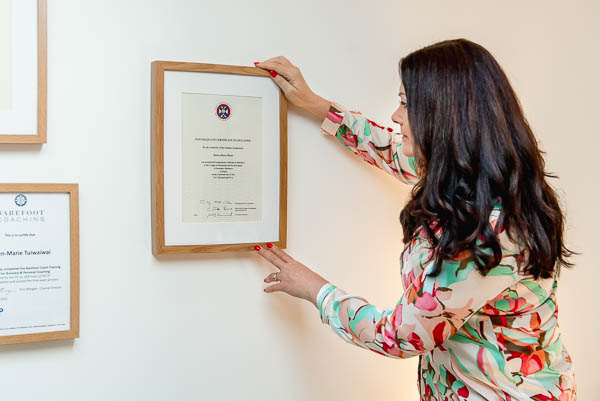
How to take business photos for business coaches
Why you might want to do something similar
- You need to look professional, authoritative, and like you know what you're talking about - you need visuals that communicate expertise and success.
- Inspirational and aspirational photos are vital for connecting emotionally with your potential clients. They portray you as not only a guide but also a motivator who can drive your clients towards achieving their business goals.
- Business coaches need to project authority and success to attract clients who are looking for growth and improvement in a competitive market. Professional imagery that highlights expertise and results can really up your credibility and attract a more corporate or entrepreneurial kind of client. Ones who can afford you, and who are driven to make the most of the help they get from you - the best kind of client!
- Qualifications and certificates help people trust you, and they're great proof you know what you're doing.
Popular image styles within this industry
- Candid shots of the artist at work in her studio, a musician in the flow of a performance, or a writer ... well ... writing!
- Detailed close-ups of the final product.
- Images that give a glimpse into the creative process, such as a painter’s palette, close-ups of musical instruments, drafts, and manuscripts.
- Behind the scenes: the cluttered yet fascinating workspaces that creative individuals often bury themselves in.
- The creator engaged in activities or in locations she draws inspiration from.
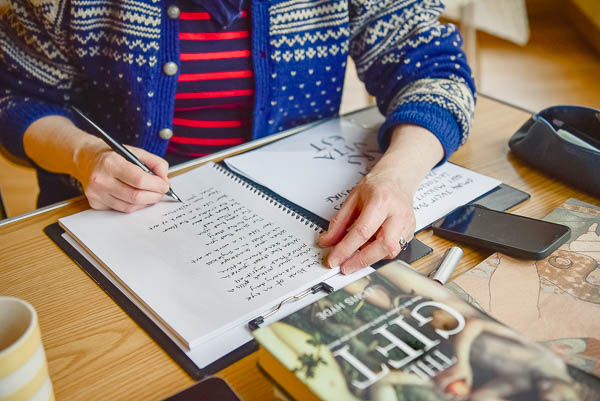
How to take business photos in the creative industry
Why you might want to do something similar
- Your business photography has to get the essence of creativity and individual expression across instantly - you need to appeal to potential buyers or collaborators who appreciate, value, and will pay for your creativity and originality.
- People who aren't creative themselves are often fascinated by the behind-the-scenes aspects of your working life - because your work life is so different from theirs. These kinds of images offer a window into your artistic lifestyle and processes, which is often as intriguing as the final artwork itself. Images showing these things not only attracts interest initially, but they also keep people interested by continuously providing content which tells your story of creativity and inspiration.
- Photos set in environments which inspire creativity, like rustic bookshops, eclectic music venues, or visually eye-catching art studios not only showcase your working environment but also play into the familiar narrative of the creative lifestyle. People like familiarity, remember - it breeds comfort, not contempt.
- People who are thinking of booking you need a deep understanding of who you are as an artist and of your creative process. This can be pivotal in building a loyal online following. Give people good reasons to follow you!
- For professionals in the creative industries, your personal brand and identity are closely tied to your art. Showing this in high quality photographs set you apart from others in your industry and help you attract clients and collaborations that align with your artistic vision.
Popular image styles within this industry
- Photos typically show learners and trainers in interactive settings, such as classrooms, workshops, or online learning environments. These images capture engagement, focus, and interaction.
- Images that show trainers actively engaging with their audience, whether in a classroom, workshop, or seminar. These photos often feature interactive elements like flipcharts, presentations, and group discussions.
- Images which focus on the educational tools and materials used during training sessions, such as books, educational software on screens, and hands-on materials.
- Photos that strike a balance between professionalism and approachability, showing trainers in a setting that is both structured and welcoming.
- Photographs showing learners applying their learning in real-world situations, like in laboratories, on field trips, or during practical training sessions.
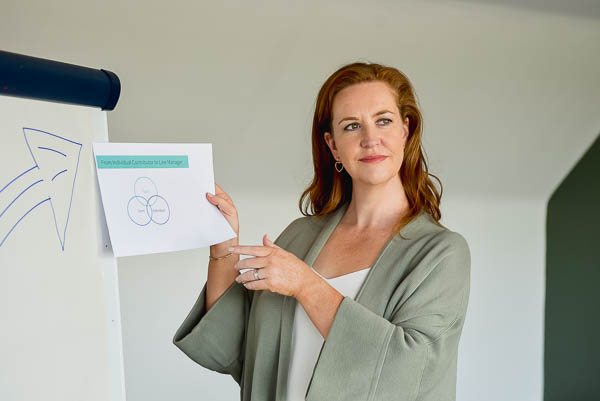
How to take business photos for the training industry
Why you might want to do something similar
- Don't show overly formal or rigid classroom settings because they fly in the face of modern educational values which emphasise interactive, engaging, and learner-centric learning experiences.
- Interactive and engaging images show that your training sessions are dynamic and encourage participation. You need to attract individuals and organisations looking for effective and hands-on training solutions. Make them imagine themselves being there with you, being taught by you ... And let them see how great an experience it will be!
- Show the variety and quality of your resources and training materials to encourage people to think you're their best option to book. (Because you are.)
- Images of you looking professional yet approachable help establish you as not only an expert but also as someone who's accessible and easy to relate to, which is dead important in personal or less formal educational settings.
Popular image styles within this industry
- Dynamic images capturing movement and activity, such as a trainer demonstrating a workout, a yoga instructor in a mid-pose, a therapist deep in conversation with a client, or a nutritionist preparing healthy meals. These vibrant and active photos convey energy and effectiveness.
- Contrasting with energetic images, photographs showcasing lovely calm, tranquil scenes are also popular, like a serene spa setting, someone meditating in a peaceful environment, or a calming wellness retreat.
- Before and after shots showing the transformation clients experience.
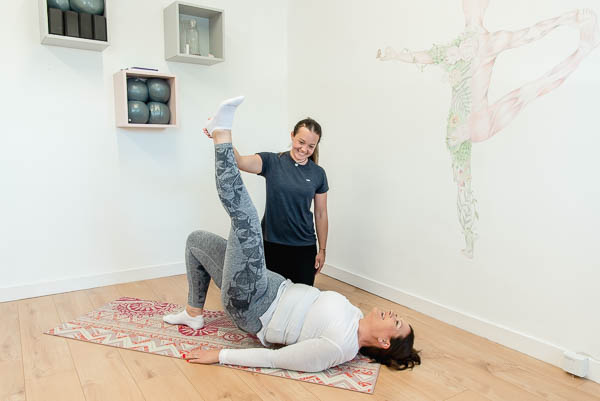
How to take business photos for the health and wellness industry
Why you might want to do something similar
- The health and wellness sector is very much about motivation and inspiration. Showing energetic, active images helps inspire potential clients to start their own health journeys, whilst serene images can motivate them to seek peace and mental wellness.
- To help communicate a lifestyle of health and balance. Relaxing and serene images also help establish an emotional connection, making potential clients feel that peace and well-being are within their reach. These visuals can be deeply resonant, drawing clients to services that promise a tranquil escape from their hectic lives. They also help people imagine themselves right there, with YOU.
- Before and after images are particularly effective in this industry, as they show the tangible results of the health and/or wellness services you offer, reinforcing and proving what your offer actually works. This is crucial in an industry where clients are often sceptical and need assurance and to trust you before committing.
- Warning: don't use overly staged or artificial images, such as people smiling unnaturally while eating salad (I mean, who DOES this?!) because they can come across as insincere, phoney, and fake. You won't really manage to connect with audiences seeking authenticity in a wellness lifestyle brand they want to engage with and possibly shell out on.
Popular image styles within this industry
- Photos might include exotic destinations, fancy interiors, stunning views, and gourmet food and drinks. High-quality images showcase the luxury and comfort of accommodation, whether it's a hotel room, a resort, or a unique travel destination.
- Depending on the kind of holidays or trips being sold, you'll see images with families having fun in the sun, or solo travellers relaxing in a sunset in somewhere unusual or far-flung.
- Photographs which capture the experiences available, such as dining, adventure activities, cultural tours, or relaxation spots like spas and pools.
- Images that reflect the local culture and authenticity of the travel destinations. This might include local festivals, cuisine, historical sites, and landscapes.
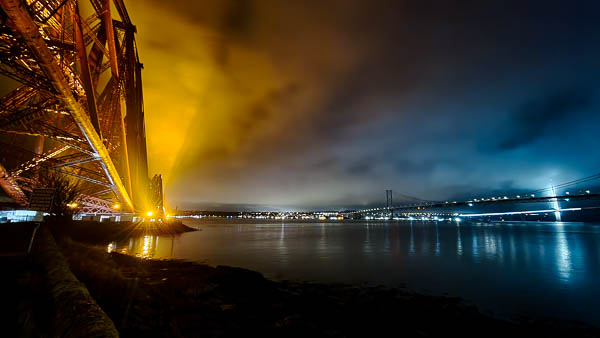
How to take business photos for the hospitality and travel industry
Why you might want to do something similar
- Lots of these images are intentionally styled to make viewers aspire to the experiences being advertised. It's classic "I want what they've got, gimme it now" syndrome.
- Imagery in this sector is designed to evoke the experience of luxury, relaxation, or adventure - the opposite of everyday life for most folk.
- Low-quality images or those that misrepresent reality (such as showing an overcrowded beach as secluded and tranquil - ha! Ever been there??) can lead to customer dissatisfaction, shitty reviews, and they can massively damage trust in your brand.
- Photos which showcase the experiences available encourage potential travellers to book unique activities, which is brilliant for differentiating yourself from competitors and what they offer.
- Showcasing local cultures and authentic experiences can attract travellers who want fully immersive experiences. These images help promote sustainable and culturally respectful tourism - ethical travel is becoming more and more popular.
- Photos like these communicate the quality of service and all round fabulousness of the experiences you as the travel organiser offer.
Popular image styles within this industry
- You often see professionals in business clothing, engaging in discussion, or working intently at their desks in a corporate setting.
- Photos capturing meetings, handshakes, or discussions with clients help show the personal connection and tailored advice provided by professionals like these.
- Office settings are typically polished, modern, and well-organised, reflecting professionalism.
- There are lots of close-ups of meaningful items such as law books, close-ups of important documents, hands working on laptops, or financial charts, underscoring the meticulous nature of the work these business owners do.
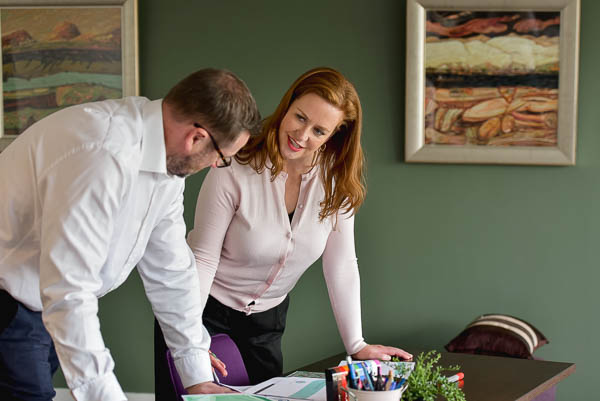
How to take business photos for the legal and financial industry
Why you might want to do something similar
- The props used for close-ups symbolise the profession and add depth to your brand’s narrative, showing people more about what you're all about. Detail-oriented images highlight the expertise and thoroughness your service, reassuring your potential clients that they'd be in capable hands if they went to you.
- By showing interactions with clients, you show that you value personal engagement and you're hot on understanding individual client needs.
- Professional and authoritative images reassure potential clients of your competence and reliability - particularly vital if you deal with sensitive, personal, and financial matters.
- These images often use a more subdued colour palette to convey seriousness. Trust is EVERYTHING in these industries, so you do need an element of seriousness in your collection of brand photography.
- Too many bright, flashy colours and images that are funny or too casual can undermine the professionalism expected of you, so keep these to the minimum. It's okay to have a small handful to show the real you behind the suit, but be careful you get the balance right. Keep your ideal client in mind at all times, and think about what will make him or her trust you.
Popular image styles within this industry
- Photos in this niche often feature the coach in thoughtful or engaging scenarios, such as one-on-one coaching sessions in cosy, comfortable settings, or outdoor settings that evoke tranquillity and reflection.
- Images showing the coach listening attentively or interacting positively with clients.
- Detail shots of certificates and qualifications.
- Behind-the-scenes photos of the coach practising what she preaches, eg meditation, journaling, etc.
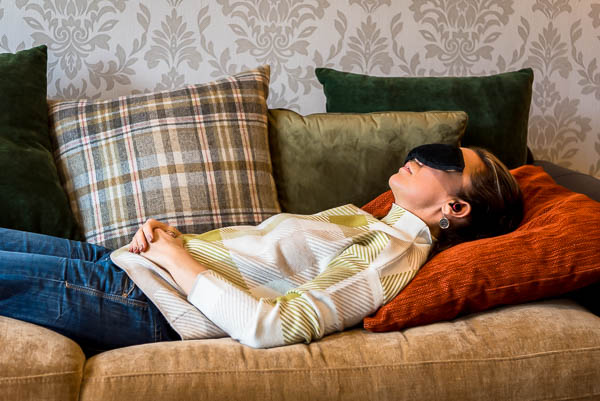
How to take business photos for the life coaching industry
Why you might want to do something similar
- Authentic and inspirational photographs that show you at work with clients convey authenticity and inspire potential clients.
- These images show the personal touch, highlighting personal interaction and the emotional connection between coach and client.
- Qualifications and certificates evoke trust, and are proof you know what you're doing.
- Show proof that you live as you teach, and that your techniques work. Photos showing you actually doing the things you recommend your clients do go a long way in helping people imagine themselves doing these things too ... And that makes them a lot more likely to connect with you, then contact you.
- Life coaches aim to connect on a deep personal level with clients who seek meaningful changes in their lives. So if you show images that portray warmth, trust, and a personal touch, that helps potential clients feel a sense of safety and connection, making them more likely to book you.
Popular image styles within this industry
- Clear, high-quality headshots that convey professionalism and approachability are an absolute must for real estate agents.
- Action shot images capturing the estate agent in action, such as inspecting a property, showing a property, and interacting with clients, which can showcase their expertise and interpersonal skills.
- Photos taken in the context of a real estate setting, like in front of a property or at an estate agency office, linking the agent directly with the industry.

How to take business photos in the real estate and property industry
Why you might want to do something similar
- Professional headshots, at the very least, are the cornerstone of an estate agent's personal branding - they're essential for business cards, websites, and promotional materials. You're in a highly competitive field, so standing out is vital.
- Images of yourself in action showcase your expertise and interpersonal skills, demonstrating you're good to work with.
- You need to look trustworthy and approachable in your images. You're responsible for the movement of a LOT of your clients' money, so trust is paramount.
- Showing your personal connections with clients can significantly influence people deciding to go with you, so show photographs of yourself in the real estate context, engaging with clients.
Popular image styles within this industry
- Minimalist, modern aesthetics.
- Crisp, modern headshots with uncluttered backgrounds.
- Photographs of up to the minute technology and modern, sleek work environments with people interacting with technology in creative workspaces or labs.
- Close-ups of techy stuff like circuit boards, hands coding on a computer, or visuals that incorporate futuristic elements.
- Photos capturing people in the act of creation or teamwork, often in casual, collaborative settings like tech start-ups.
- Close-ups of people using technology.
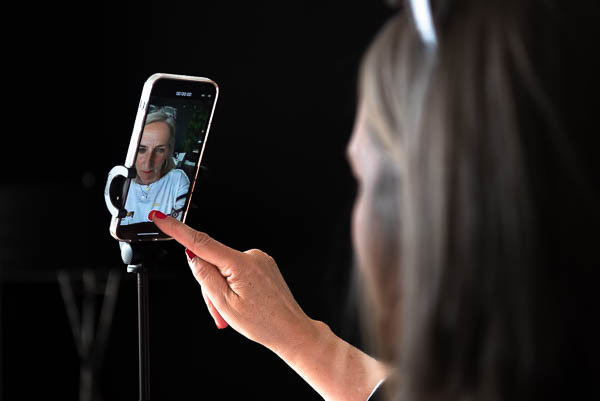
How to take business photos of the technology industry
Why you might want to do something similar
- To convey innovation and efficiency.
- You need to show yourself in the context of your industry, so your photos should show you working with relevant equipment.
- Pictures of you need to convey intelligence and professionalism, so whilst a bit of daftness in the odd image or two is fine to express who you are out of work, remember - people who will use your services need reassurance you will take them seriously.
- Tech people sometimes have a bad rep for being solitary anoraks interacting only with screens, so show yourself engaging with end users or customers to show you are the bridge between "normal" people and the cutting-edge tech which will make their lives easier.
- Creative shots that incorporate modern, high-tech elements can set a tech professional apart, suggesting a forward-thinking and innovative mindset.
- Outdated or clichéd images, such as people staring at screens filled with unintelligible data, are pretty old-fashioned and just don't look realistic nowadays.
Popular image styles within this industry
- Photos that emphasise organisational skills, such as tidy, well-organised workspaces with modern technology and tools.
- Shots of the virtual assistant at work, focusing on tasks, or interacting with technology efficiently.
- Photographs of the VA in his/her well organised, uncluttered, home office, working on a computer, or speaking into a phone.
- Friendly, approachable portraits that convey reliability and professionalism, often with the virtual assistant smiling and engaging with the camera in a home office setting.
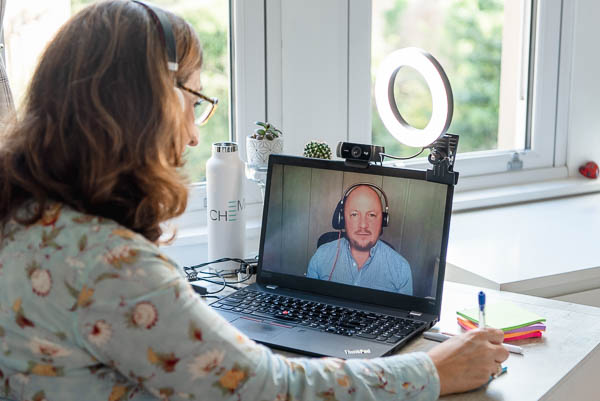
How to take business photos in the virtual assistant industry
Why you might want to do something similar
- Efficiency and organisation are what people come to you for! VAs often need to demonstrate their efficiency and ability to handle multiple tasks remotely. Showcasing images that highlight a well-organised, professional work environment helps build trust with potential clients who need to rely on someone like you remotely.
- More relaxed shots can convey personality and approachability, which are important for client relationships. Clients need to like you, as they'll likely be interacting with you and depending on you a lot. This really personalises your service, making it easier and more appealing for potential clients to connect with and hire you.
- You need to show you have a good grasp of up-to-date tech. Action shots of you working with a particular tool help illustrate the range of services you offer, from administrative support to client management.
But I don't know what industry I fall into!
Maybe you don't fall neatly into only one industry category. Maybe you straddle two, or even more, industries? Here are some examples you might find useful if you're a wee bit stuck:
How to take business photos if you're a Marketing Strategist
A small business owner offering marketing strategy services, like Belter Marketing here in Edinburgh, would primarily fall into the tech industry, but my business coaching industry suggestions would also be relevant.
This is because marketing strategy often involves using digital tools and platforms, which are central to the tech sector, but they often give their clients strategic guidance similar to business coaching.
How to take business photos if you're a Podcasting Strategist
What if you offer podcasting strategy advice, like Bespoken Media? You'd align with both the creative industries and the tech industry. There's loads of content creation in this job, and of course there's storytelling, content planning, and audience engagement, which are key elements of the creative industry.
Then there's also all the technical stuff involved in recording, editing, and distributing podcasts. These services focus on, while also using, digital tools and platforms for podcast production and analytics, linking closely with technology and innovation.
How to take business photos if you're a Social Media Manager
For example, a social media manager would typically fall into the technology and innovation industry category, as their work is heavily centred around digital platforms and making the best use of new technologies for marketing and communication.
Social media managers often make use of the latest trends and tools in social media to enhance their clients' brand visibility and engage with target audiences effectively. If this is you, also look at the suggestions for the creative industries and the virtual assistant industries.
How to take business photos if you're a Web Designer
You'd need to look at both my tech and creative industry suggestions. You probably blend technical skills with creative design, creating both the aesthetic and functional elements of websites.
Any other job title or service?
If your job or service doesn't fall neatly into one of my categories above and you'd like to know what kind of business photographs are popular in YOUR industry and why, contact me, and I'll do a bit more digging and update this article accordingly!
It's not about following the crowd
Creating - and posting! - the "right" kind of business photographs isn't just about slavishly adhering to industry standards. It's about creating a visual identity that resonates deeply with your target audience and sets you apart from the competition, who in many cases is just NOT be doing this.
You might be thinking "yes, but if too many other people in my industry are already doing this, how can I possibly stand out?"
Remember, nobody else is YOU. So the very fact YOU are in these photographs, doing YOUR thing, in YOUR specific locations with YOUR props, means your brand photography will be unique.
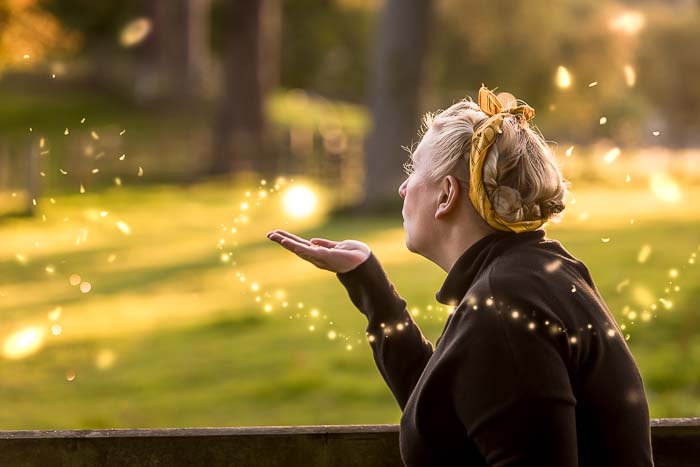
You are not unique in the type of service you offer, but you're unique in your exact approach!
This isn't about copying, or mindlessly conforming. It's about showing your target audience what they need to see to make them want to book or buy from you.
Take control of how you and your business are perceived
I've shown you above how all these different image styles vary a lot, so you'll see how intentionally designed business photography can massively enhance how potential clients perceive you and your brand.
And this is EXACTLY what you want! You want to have a hand in shaping how people see you, don't you, and not leave it to chance?
NEXT STEPS
The right business photographs are vital - they reflect your brand's professionalism and values.
Hopefully this has shown you how to take business photos which command attention and build trust, making it more likely that potential clients will reach out to you.
Investing in high-quality, strategically planned brand photos can make all the difference in turning viewers into valuable contacts and clients, so here's what to do now:
1.
Review your existing business photographs - or book a
2.
Create an action plan list of what you need (or review the one you'll get from my Visual Content Audit).
3.
Decide how you're going to get the right business photographs. If you're going to DIY it, my free brand shoot planner will be an immense help.
4.
If you'd rather get this done professionally, see my pages here:
If you're in Edinburgh or anywhere else in Scotland ...
... and if you're ready to transform your professional image and make a lasting impression, contact me now to discuss how we can create a bespoke photography plan that perfectly captures the essence of your business and attracts the clients you'll love to work with.

